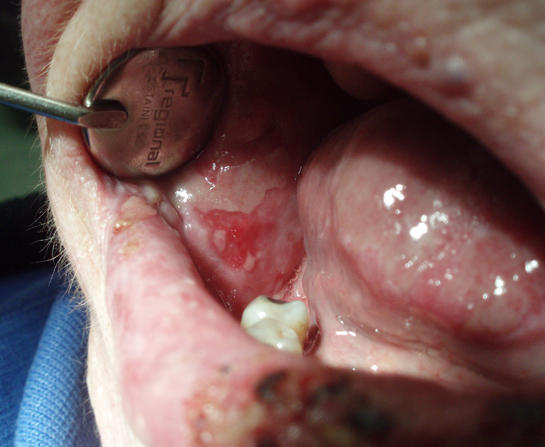On Oral Mucositis
April 28, 2022 Return


Dr Nik M Mazuan NM Rosdy Deputy Dean (Clinical), Faculty of Dentistry, Universiti Teknologi MARA Sg Buloh
Cancer therapies can often cause side effects, and some of these side effects can involve the tissue lining the oral cavity. Therapies involving the head and neck, especially, can affect the oral cavity, possibly giving rise to complications such as oral mucositis, dry mouth, dental caries, ulcers, fungal infections, difficulty in opening the mouth, difficulty in swallowing (dysphagia), and altered taste (dysgeusia).
When oral mucositis occurs
Oral mucositis (OM) is the inflammation of the tissue lining the inside of the mouh (called the oral mucosa). It is thought that mucositis occurs as a result of the direct damage of DNA in the cells of the epithelium that can cause cells to die.
When someone has OM, he or she experiences a thinning of the oral mucosa (atrophy), damage in vascular tissues especially the blood vessels, and increased concentration of inflammatory cells. As soon as OM starts, the patient will experience pain (due to ulcer formation and thinning of the mucosa), difficulties in chewing and swallowing, as well as dry mouth. This disease can seriously affect the patient’s quality of life both, short and long-term.
An unfortunate side effect
OM is one of the more common side effects of cancer therapy. Radiation is the main cause of OM, and cytotoxic drugs (such as those used in chemotherapy) can also be a factor. The likelihood of developing OM increases if the patient has poor oral health, smokes or drinks alcohol and suffers from infections.
Prevention
Good oral hygiene is the best preventive measure. Patients who will undergo chemotherapy or radiotherapy should be thoroughly screened by a dentist. It is essential to detect any preexisting problems such as gingival infection, dental disease, or any structurally damaged teeth.
The mouth or oral hygiene should be maintained with the highest care at all times. Poor oral hygiene is a major contributor to the development of oral mucositis as soon as the patient receives cancer therapy.
Treatment
There is no widely acceptable specific guideline or gold standard for the treatment of oral mucositis to date. However, there are plenty of options that can be used.
Some common methods in treating this predicament include the usage of mouthwashes due to its direct effect on the oral mucosa. Several mouthwashes containing different properties have been used such as benzydamine (contains anti-inflammatory properties), chlorhexidine (antimicrobial), and povidone iodine (antimicrobial). It is important to note that mouthwashes should not contain alcohol because it will make it worst.
Supplements such as zinc also has been used and shown to give some improvements in those patients. Other treatments include dry mouth treatment via several topical medications, fluoride treatment for the teeth and perhaps, an alternative choice, natural and homoeopathic agents such as aloe vera, honey and several plant extracts.
References:
Emily R. Holt, Taylor Potts, Rachel Toon, Melinda Yoder. (2015). The Journal for Nurse Practitioners; 11 (2): 253–257
Shu-Ching Chena, Yeur-Hur Laib, Bing-Shen Huang, Chien-Yu Linc, Kang-Hsing Fanc, Joseph Tung-Chien Chang. (2015). European Journal of Oncology Nursing. 19(3): 214–219.
A. Rodrı´guez-Caballero, D. Torres-Lagares, M. Robles-Garcı´a, J. Pacho´n-Iba´n˜ez, D. Gonza´lez-Padilla, J. L. Gutie´rrez-Pe´rez. (2012). Cancer treatment-induced oral mucositis: a critical review. Int. J. Oral Maxillofac. Surg. 41: 225–238.
If you like this article, do subscribe here.
